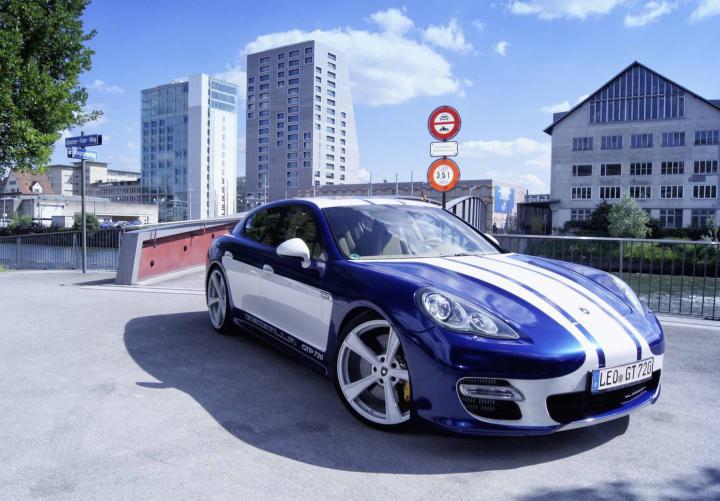
The GTP 720 is, as the name implies, a 720 horsepower iteration of Porsche’s successful sedan. The extra power comes from upgrades done to the twin-turbo 4.8-liter V8 that is normally capable of producing 570 hp in the Panamera Turbo S. The end result is a 0 to 62 time of 3.2 seconds.

This is a full second faster than the vanilla Panamera is capable of. If that’s not impressive enough, then keep in mind that it can do from 0 to 300km/h (186 mph) in 26.4 seconds, which outpaces the normal Panamera by 33.4 seconds.
Further driving the point home is that the GTP 720 recorded a 1:37.08 lap time around the Sachsenring, a 2.28 mile track in Saxony. This gives it a quicker time on this track than the McLaren Mercedes SLR and even edges out the Nissan GT-R’s record for this track.
Yes, we’re sure the extra 150 hp over the Turbo S’s output helps, but according to the Gemballa chief executive, Andreas Schwarz, this isn’t the key element: “This exceptional performance is not only due to the car’s horsepower but also to its torque, raised by 255 Nm and available over a wide range of revs.”
No price has been stated on this retooled Porsche, but we suspect it’s in line with what the “more money than I know what to do with” class of shopper is used to.


